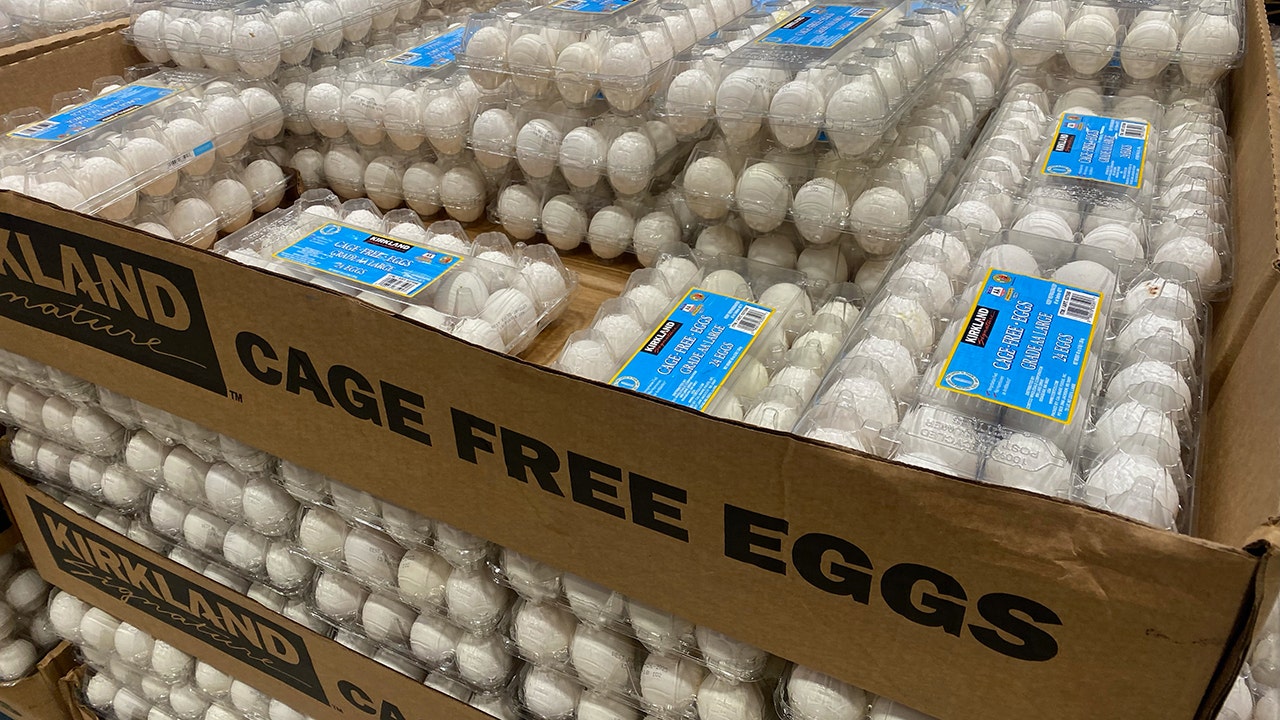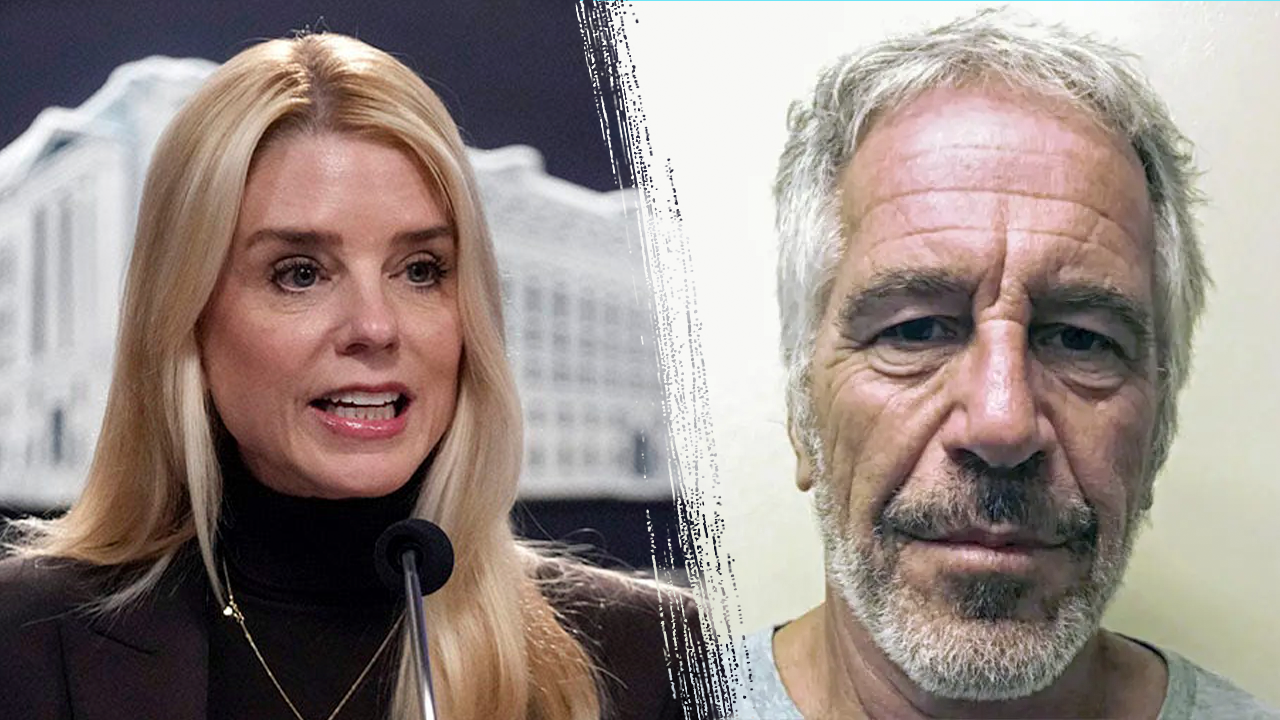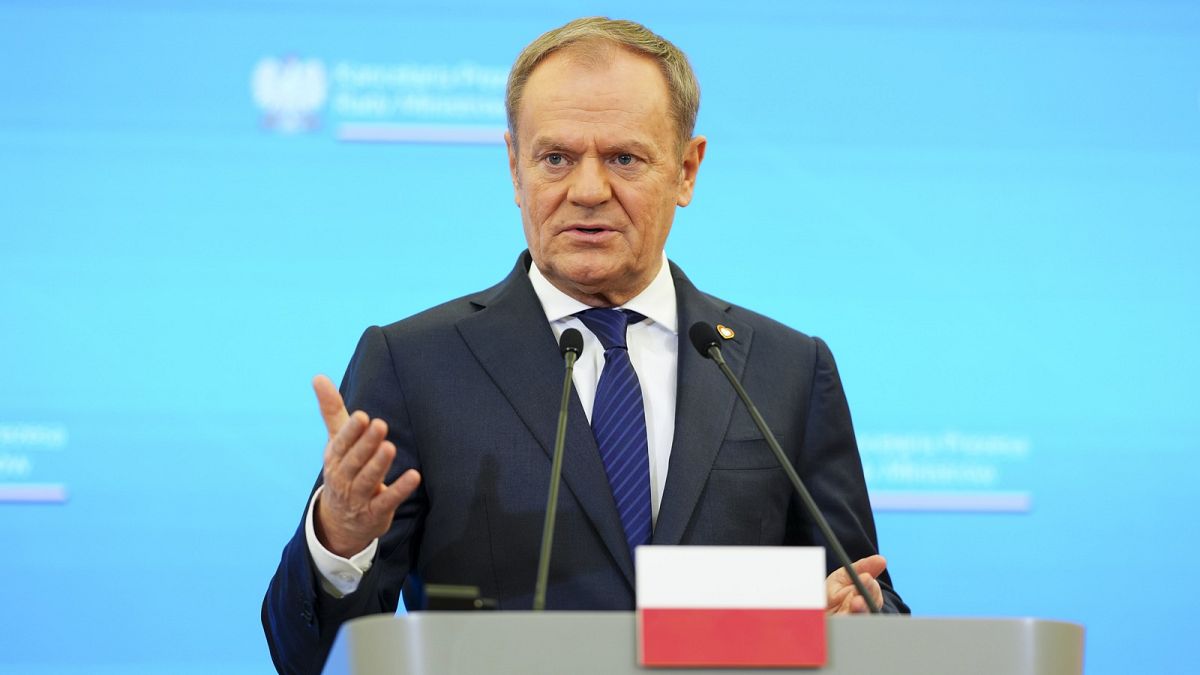Under the sanctions, the EU has frozen €210 billion in assets of the Russian Central Bank, most of which are held in Belgium.
Polish Prime Minister Donald Tusk has called on the European Union to confiscate the assets of the Russian Central Bank, which are frozen due to sanctions, to finance future financial support for Ukraine.
So far, the bloc has only used the extraordinary revenues of the assets held in its territory, estimated to be worth €210 billion, to deliver financial and military assistance to the war-torn nation. The option of asset confiscation remains a slippery slope, however, because the money is considered Russia’s sovereign property and is therefore protected by international law.
“Enough talking, it’s time to act” Donald Tusk posted on X on Thursday. “Let’s finance our aid for Ukraine from the Russian frozen assets.”
Tusk’s bold idea comes amid heightened fears that US President Donald Trump, who is currently immersed in a bitter feud with Volodymyr Zelenskyy, might soon cut all assistance for Kyiv, leaving it vulnerable to Russia’s aggression.
Trump shocked allies when he put the blame for the invasion on Ukraine and described Zelenskyy as a “dictator without elections,” echoing Kremlin propaganda.
The remarks have cast serious doubt over Trump’s ability, or willingness, to mediate between the warring parties and achieve a settlement that respects Ukraine’s independence and sovereignty, a non-negotiable demand for Europeans.
US Secretary of Defence Pete Hegseth has urged Europe to “provide the overwhelming share of future lethal and non-lethal aid to Ukraine.” Hegseth also said America would no longer be “primarily” focused on the continent and shift its priorities to the Pacific.
With America pulling rapidly away from the Atlantic alliance, the EU is considering innovative ways to drastically ramp up its defence spending and assume the vast responsibility of the financial, military and humanitarian support that Kyiv needs.
But national budgets are cash-strapped and economic growth is stagnant, leaving few options to draw fresh revenue. Confiscating the €210 billion in Russia’s frozen assets could theoretically fill the gap for the foreseeable future.
However, doing so would require unanimity. Hungary, a vocal critic of EU sanctions, is unlikely to agree. Germany has also raised reservations about the unprecedented move.
Meanwhile, the Kremlin has threatened to retaliate against confiscation.
But Tusk wants the EU to think bigger.
The bloc, he said on Thursday, should also “strengthen air policing, the Baltic sentry and the EU borders with Russia” and “swiftly adopt new fiscal rules” to finance its security and defence needs, set to expand as the US moves away.
It needs to happen “Now” emphasised Tusk, after listing his three options.
Wide-ranging reform of the EU’s fiscal rules, which set limits for the debt and deficit that each member state must respect, was approved last year. During negotiations, some capitals pushed for a so-called “golden rule” to automatically exempt defence expenditure from the calculation. The idea was eventually rejected.
Now, as the demands for investing in military capabilities grow to new heights, a larger choir of voices is demanding stronger action.
Ursula von der Leyen, the president of the European Commission, said last week she would propose to activate the “escape clause” to relax the application of the fiscal rules and “substantially” boost defence spending.
The bloc needs to invest some €500 billion in its defence in the coming decade in order to continue supporting Ukraine, but also ensure it can protect itself, alone, if needed against any aggression.
Earlier this month, Poland’s Foreign Affairs Minister Radosław Sikorski pitched another ambitious idea: the establishment of a rearmament bank.



